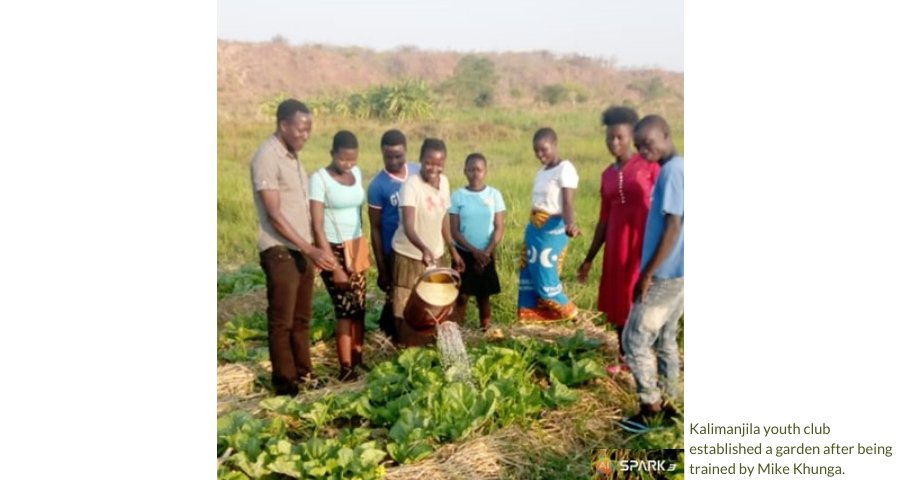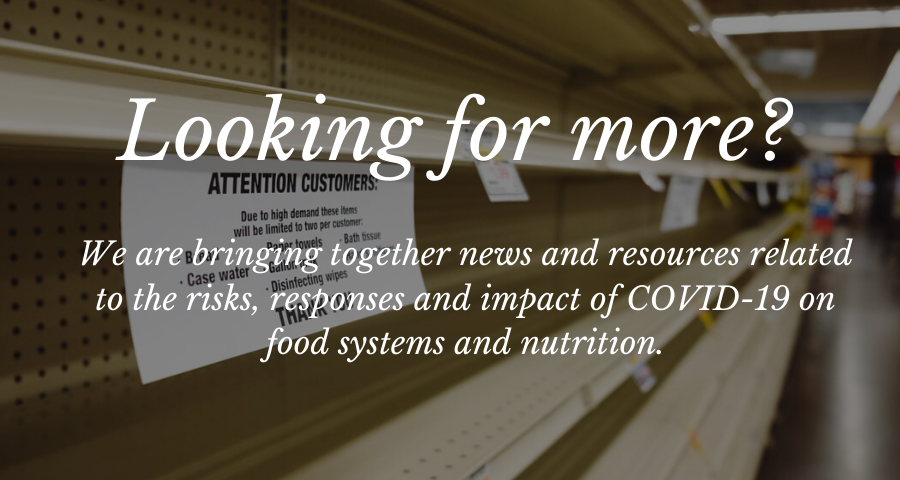Today no one would argue the huge contributions young people have made to global movements on environment, food, nutrition and health in the last few years. Never before has a generation been so proactive in the way we think about food and environment. As it stands young people are to inherit a planet that will be four degrees warmer, threatening the availability and nutrition quality of what they eat as well as the air they breathe. The question that has to be answered by all key players in the food systems is: how are young people involved in transforming the food system so that it becomes resilient, affordable and accessible to all?
There are many actions that can be adopted to enable youth participation in transforming the food systems especially with the upcoming of the UN Food System Summit 2021 (FSS). Firstly, young people have to be given the opportunity to contribute to the global discussion of the food system and their priorities should be considered by respective key players. While youths’ contributions are essential, forming youth coalitions to bring together youths’ knowledge and voices will be paramount during transforming the food system. Youth Leaders for Nutrition, African Youth Leaders for Food System Summit and the Youth Champion Coalition of the UN Food System Summit are some examples of mouthpieces for youths’ contributions in the upcoming FSS. As the UN Food Systems Summit will soon kick off with in-country Food System Dialogues to develop actions that can transform food system at national level, young people should be supported with relevant information to participate in the dialogues and contribute their ideas.
Youths as drivers of the food systems during crises like COVID-19
Meanwhile millions of young people from age 15-35 are already changing their attitudes towards food, moving towards a more plant-based diet while holding leaders to account for failure to act fast. In the wake of COVID-19, young people are demonstrating continued leadership in their communities in making sure that COVID-19 messages reach the most vulnerable people as well as supporting communities with COVID-19 response mechanisms. For example in Benin Hashim Hounkpatin is using social media and apps to spread accurate information about COVID-19. Global pandemics will continue unless each country shows commitments to transform the food system and young people are key drivers during food system transformation. The fear for most young people to get involved is that much of the food system processes are not seen as youthful, for instance during cultivation the use of holes and other physical labors in most developing countries cannot attract the youth to participate in agriculture. While there are growing efforts to incentivize agriculture for the youths to participate, the youths are not given adequate loans and land to participate in agriculture. At the same time, there are a growing number of small and medium enterprises (SMEs), most of which are started by youths – but SMEs are not given space in the business markets as the “big fish” dominate because of their low prices and bargaining power. Governments should put in place an enabling policy environment to ensure that SMEs have a share of the market and are supported with resources to produce quality nutritious food.

Youth participation in nutrition and food system platforms to enhance understanding of nutrition among the youths
As a Youth Leader for Nutrition in Malawi, I realized that over 50% of the population of Malawi are the youths but they do not have any representation in the various community nutrition committees. I believe that is wrong so I developed a project and managed to get it funded through a SUN Innovation and Research Grant. The concept of my project focuses on ensuring that each youth club has representation at the nutrition committee so that whatever nutrition development happening in the community, the youths should be part of that. To carry out this, I did several engagements with district stakeholders such as the Director of Program Planning and the Principal Nutrition officer. At community level, I engaged local nutrition committees as well as powerful village chiefs who are leaders of the committee, once obtaining agreement, I then interacted with the youth clubs and I have trained 80 youths in nutrition. The youths I trained are doing cooking demonstrations and backyard gardening showcasing to the community the best nutritious diets.
Youth as agents for positive change
Youth are such an important part of our societies, not just in terms of sheer numbers but also our power and energy to make changes for the better. And I want to remind everyone that yes, we are the future, but we are also the present. I am proud to see all that youth has already done to make our world a better place, and I want to encourage even more people to take actions to help improve nutrition and make our food systems better. And for those who think we are too young or idealistic to get things done – we are not, and we will show you what we can do together for a better today and tomorrow.
Mike Nkhombo Khunga is a Global Youth Advocate for Nutrition and the vice chair of the UN Food System Summit Action Track 5. He is a professional nutritionist working with Civil Society Nutrition Alliance (CSONA) where he engages government and private sector to improve nutrition in Malawi.

